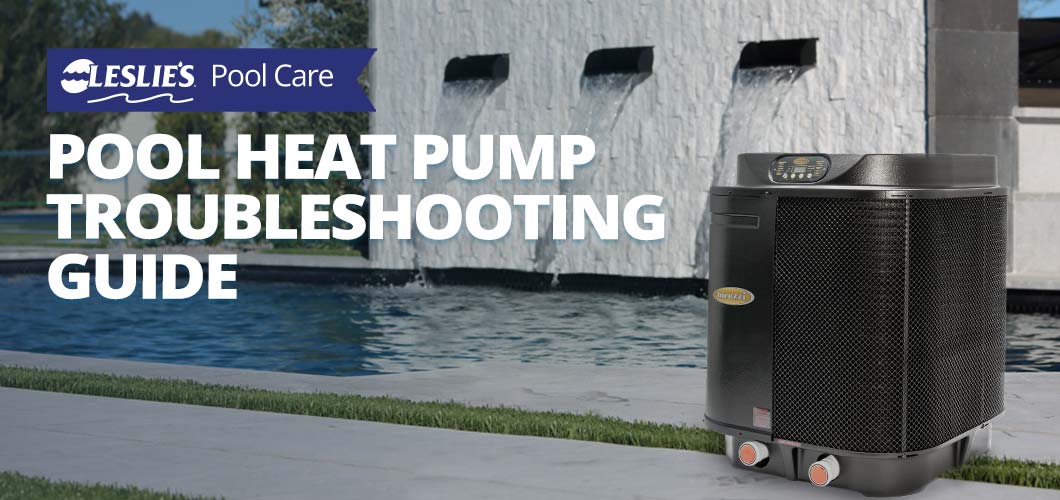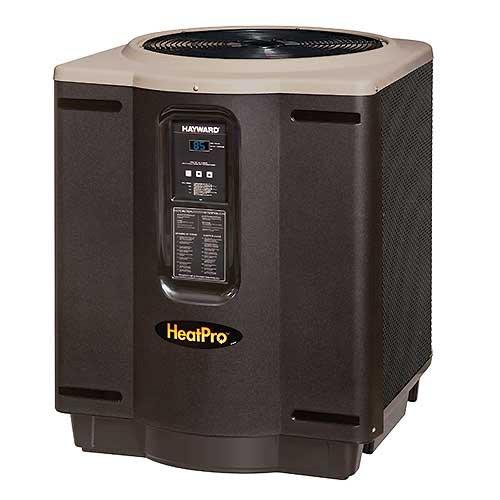
Pool Heat Pump Troubleshooting Guide
If you are the proud owner of a pool heat pump, you likely have the opportunity to enjoy your pool long after other people have closed theirs down. Heat pumps are a top choice for many pool owners looking for an efficient, affordable way to heat their pool. But, heat pumps are not immune to problems, and require occasional repairs. Let’s take a look at some pool heat pump troubleshooting tips to keep your pool water nice and warm when the weather begins to cool.
How Do Heat Pumps Work?
Unlike gas pool heaters, heat pumps don't actually produce their own heat supply. Instead, they rely solely on the outside air temperature to warm up your pool. As the air enters the heat pump, it's passed through the internal system, where a refrigerant converts it to hot vapor gas, which ultimately heats the water. Since heat pumps derive heat from the air, they are quite eco-friendly and more efficient than gas heaters. However, this characteristic also renders them significantly ineffective in temperatures below 50ºF.

How to Troubleshoot Pool Heat Pumps
Now that you understand the inner workings of heat pumps, let's dive into a few issues they face and how to resolve them. Heat pumps are typically durable and last for many years, but just like any piece of pool equipment, they require occasional troubleshooting.
1. Heat pump is running, but not heating the pool.
- First thing to remember is that a pool heat pump can only effectively work in temperatures over 50ºF. Any temperature below 50ºF, the freon (refrigerant) will begin to freeze and prevent the heat pump from working properly. If your pump is in defrost mode, you will need to wait until the evaporator is free of ice.
- Is your heat pump located under a low roof or close to a wall or fence? Obstructions can inhibit adequate airflow to the heat pump, limiting performance.
- Is your heat pump circulating warm water into the pool, but the water temperature is not rising? The heat may need more time to properly circulate the water, so increase the pool pump run time.
2. Heat pump takes too long to heat the pool.
- Air temperature, the size of your swimming pool, and the heat pumps condition all impact how long the unit will take to heat your water. If your heat pump is in good condition, it may take between 24–72 hours to heat an average-size pool about 20ºF.
3. Heat pump will not turn on or run.
- First, ensure the unit is plugged in and the circuit breaker is not tripped. Flip the switch off and back on before attempting to power up your heat pump again.
- Is the thermostat set too low? If your pool water is actually higher than the setting on your thermostat, it will not need to warm the water. Adjust the temperature setting to above the current pool water temp.
- If your heat pump is on, but not running, make sure all valves are in the correct position to allow proper water flow. Also, ensure the filter and pump basket are clear of debris, and that the filter is running.
4. Heat pump is leaking water.
- Since heat pumps use refrigerant and hot gas to warm your pool water, condensation may form on or around the unit. One way to test for a leak is by turning off your heat pump, while leaving the filtration system running. If the puddle of water evaporates, you should be good to go. Keep in mind that heat pumps naturally create up to 9 gallons of condensation per hour.
- If the puddle remains, or continues to grow while the pool pump is running and the heat pump is off, then there may be a leak. Test the water with a test strip or reagent, looking for any sign of a sanitizer (chlorine or salt). Normal condensation will not test for any chlorine. If chlorine is present, you will need to find and fix the leaking area of your heat pump.
PRO TIP: Did you know Leslie's offers nationwide at-home equipment repair services? That's right! Simply schedule a service appointment online, and an expert Leslie's technician will come to your home to fix any equipment problem. Even a leaky heat pump!
5. Heat pump has poor water flow.
- One of the most important ways to keep your heat pump running strong is to verify that steady water flow is being pushed through the unit. Once the pump loses steady water flow, it will take a lot longer to complete a heating cycle. Only run your heat pump when it has water flowing from the filtration system. Running a dry heat pump can cause irreparable damage to the unit.
- So, how can you increase the water flow? Make sure the working valves are open and all debris is cleared from the filter and filter basket in the pool pump. Once your filtration equipment is unclogged, the heat pump’s performance should drastically increase.
A malfunctioning pool heat pump can put a damper on your day, and ruin any plans of enjoying your pool. But with the right help, you can tackle any heat pump troubleshooting with ease! Whether you stop in to your local store, or schedule an at-home service repair online, Leslie's is here to help with any pool related issue.